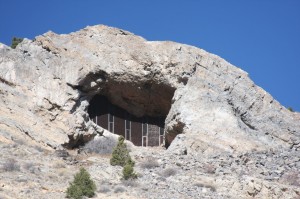by Martha Quillen
It’s no mystery why the story of the first Thanksgiving became an inspirational legend. The Pilgrims arrived at Plymouth in December of 1620 (393 years ago this month) and stayed aboard the Mayflower, where they died by the dozens. They were sick and discouraged until March, when an English-speaking native hailed them, saying, “Much welcome, Englishmen.” Then he introduced the newcomers to Massasoit, a leader of the Wampanoag, and the natives taught the Englishmen how to survive in their new home.
That autumn, the Pilgrims and Wampanoag celebrated a bounteous harvest, replete with turkey, venison and newfound friendship. The Hallmark Channel couldn’t have come up with a more heartwarming scenario.
But in 1637, the peace between the European immigrants and Native Americans was shattered by the Pequot War, and in the following years, even the friendly Wampanoag got fed up with the growing numbers of land-hungry Europeans settling in their backyards. The Englishmen imposed foreign laws, restrictions and governance upon the natives, and war ensued.
In 1675, Metacom, a son of Massasoit, led an uprising that included Wampanoag, Narraganset, Nipmuck, Abnaki and Mohawk. Hundreds of settlers were killed, but the pilgrims rallied and retaliated, devastating native villages, until the natives fled the region, leaving it to the New Englanders.
The moral of this story might be: “It’s safer to rescue wild animals than would-be colonists.” Or “A friendship based on need may end when that need is met.” Whatever moral you chose, that friendship ended horrifically.
They say you can learn from history, but its lessons are seldom clear. I’ve been watching U.S. politics for four decades, and that hasn’t taught me much about the best way to establish a viable economy, conduct wars or protect American jobs.
Lately, I’ve been thinking a lot about America’s economic problems. I’ve read several books about the growing inequality between the rich and the poor in our nation, and I recently heard an Obama spokesman on the news refer to the “collapse of the middle class.”
Despite all of the promises our democracy was founded on, our government tends to serve those with money and influence better than the rest of us. That was especially true during the Gilded Age, when booming railroads, mines and industries made enormous profits, while workers toiled in wretched workplaces for minimal compensation.
And that scenario is making a comeback. Modern politics mirror Gilded Age politics. Once again we’ve got low wages and high profits. American workers can’t seem to get ahead, so they feel cheated and are turning on one another. And in order to curry our votes and favor, politicians and pundits foment racial, ethnic and class resentment and encourage us to blame each other.
The middle class may have the numbers, but it’s so discordant it has no coherent influence. We are divided into Republicans, Democrats, Tea Partyers, Libertarians, minorities, male and female, young and old, blue collar and white collar, Northern, Southern, Eastern and Western. Our divisiveness renders us incapable of standing up for our common needs. Instead we blast each other during every campaign, threatening to secede or revolt. In fact, five Colorado counties actually voted for secession during the last election.
I especially hated the 2013 campaign, because the nastiness touched home. Usually local politics are lackluster, with a high percentage of candidates running unopposed. But this year, a rousing campaign divided Salidans into two distinct groups.
Parsimony was a vocal division point, but not necessarily an actual one.
In recent years, the residents of both Poncha Springs and Salida protested giving a raise to administrators making about 90K, and such “lack of support” toward public employees became a major issue in Salida.
But in September, the City of Salida advertised a “permanent, part-time” position for a semi-skilled maintenance and repair worker for $9.35 to $11.73 per hour. Talk about cheap. A person working 40 hours a week for such wages might manage to support himself, but if that person has children? Or medical bills? (And this employee wouldn’t be working a forty-hour week for the city, so he’d have to commute between jobs.)
For many Salidans 50K sounds like an incredibly generous salary, a sum worth dreaming about. That – rather than our bad attitudes – is our real problem. Wages in Salida are substandard, and many locals rely on multiple part-time positions, usually without benefits.
At the beginning of the 2013 campaign, I tried to convince a relative newcomer that some Salidans simply can’t afford all of the “improvements” the city is promoting.
Whereas he snapped, “A lot of people don’t really believe that you’re a native. You just try to act like one.”
I was stunned. I’m originally from the Detroit area, which is hardly in the neighborhood, so I couldn’t imagine anyone considering me a native. But being a native was not the point. We are not Pilgrims and Wampanoag. We are 21st-century Americans who share the same language and culture and should be able to discuss a budget without regard to who got here first.
The initial conflict that divided Salidans was between those who supported the council and its policies and those who didn’t, but it quickly gathered momentum, pitting newcomers against old-timers, tourists against townies, and progressives against conservatives. Complainants contended that their opponents were cheap, backward obstructionists. Or rich, insensitive spendthrifts.
Is this, I wonder, what happened between the Pilgrims and Wampanoag? The North and South? Custer and the Sioux?
The election made me feel much better. Once again, the citizens tacked toward the middle – and chose candidates from both camps – because they apparently see the wisdom of integration. Now the town council can battle over our budget in chambers, where Robert’s Rules of Order will cut down on insults and epithets.
But history isn’t what it used to be. In 1929, the stock market collapsed and a depression resulted, leading to years of misery, which eventually inspired new banking laws and regulations. In 2008, a stock market crash led to an immediate stimulus, which let us go back to business as usual, which included continuing on with a thirty-five-year decline for the middle class.
Now there have been four decades of stagnant wages and falling expectations for the middle class. So where will it end? With the U.S. eventually becoming a land of beggars and billionaires with a small professional class in between?
And how do we stop it? The Republicans and Democrats have exacerbated the problem and the 99 percent have failed. Must we wait and see? Or could solutions begin in communities like Salida?
Salida has heart and soul. We have people who understand microloans and small business. Our citizens are familiar with their entire community, our churches are active, and our population is fairly well-educated.
So what would it take? Lobbying? Writing Congress? Appealing to state officials? But for what? Minimum wage increases? Small business loans? Something else? Or would establishing more community resources help? Perhaps places to generate income, such as flea markets?
Or maybe it’s just a matter of owning the problem, recognizing it and refusing to deny or ignore it. America’s working classes need help. The problem is discouraging here at home, but it is so much worse in Saguache County and points south, and in large parts of New Mexico and Oklahoma.
Surely Americans can do something about this. But what?
In November, Martha Quillen attended a book opening in Salida for Deeper Into the Heart of the Rockies, a collection of Ed Quillen’s columns edited by their daughter Abby, and the turnout was superlative. Thank you, Salida, for housing the most supportive, generous, helpful population on earth. For information about the book, see edquillen.com/anthology.





